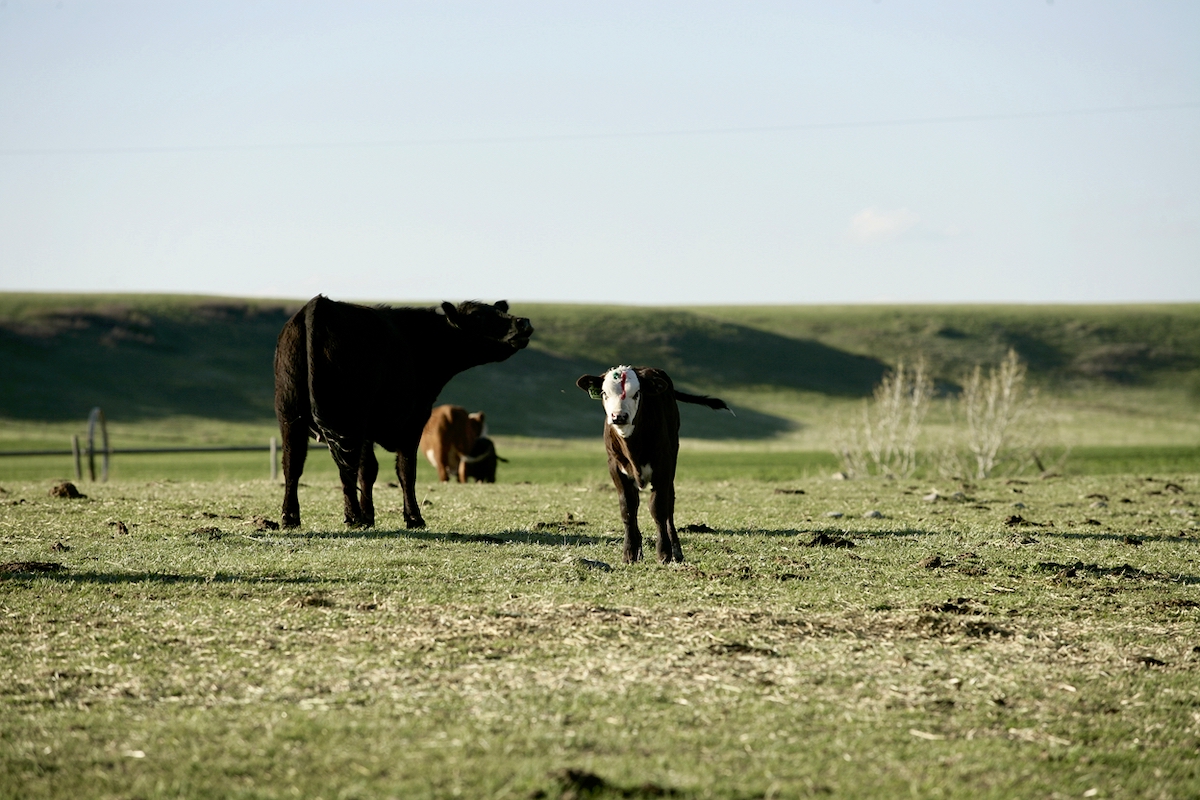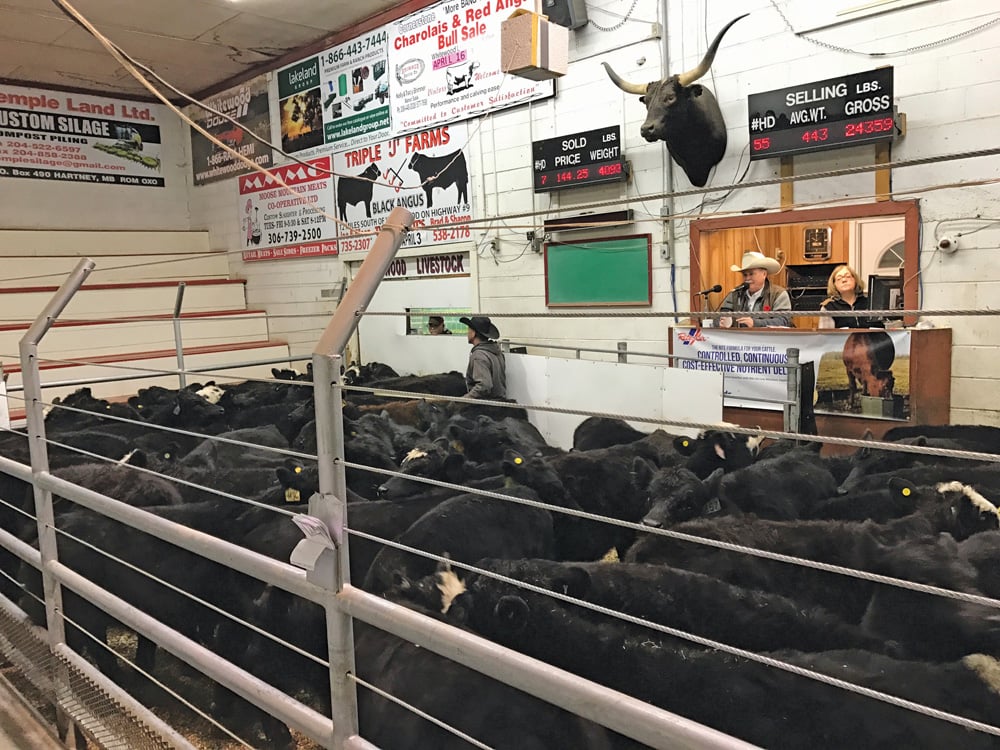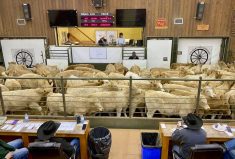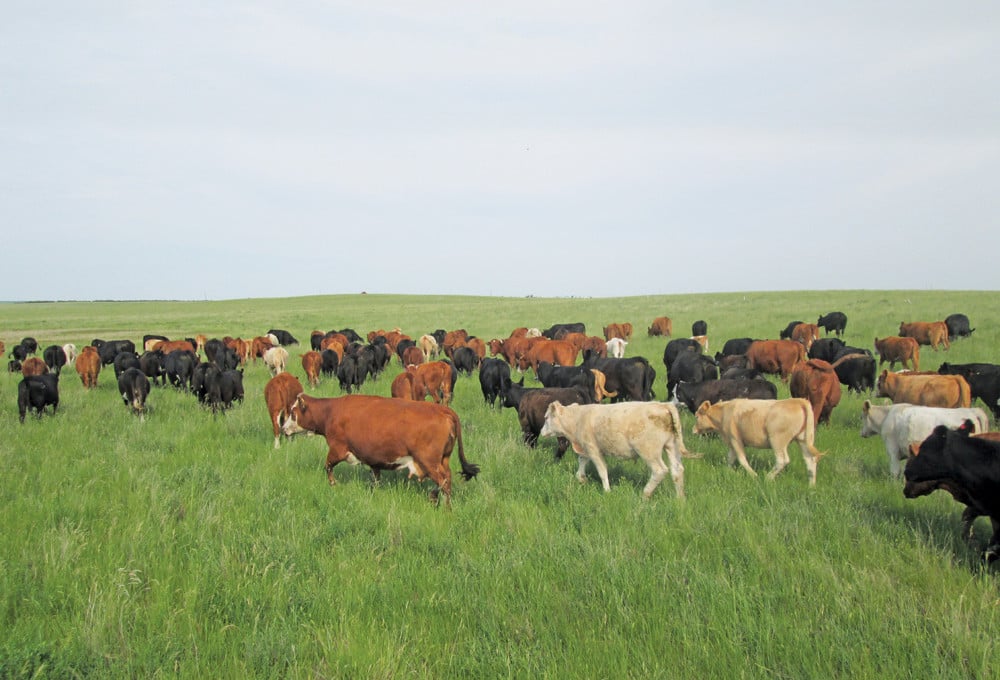The upcoming year will be one for the record book at Whitewood Livestock Sales as preparations get underway for the September reopening of its affiliated market at Pipestone, Man., and to welcome Canada to the 21st annual Canadian Livestock Auctioneering Championships next May 11 at Whitewood, Sask.
Market owner-operators, Rhett Parks and his dad, Gene, are no strangers to all that’s involved in hosting this national competition put on by the Livestock Markets Association of Canada (LMAC) in conjunction with its annual conference to be held at the nearby community of Moosomin.
Read Also

Body condition, nutrition and vaccination for brood cows
One of the remarkable events of the past century related to ranching has been the genetic evolution of brood cows….
Rhett says it’s quite an honour to have the opportunity to host the event in a rural area because it is usually held in larger centres as it rotates from province to province. First off this summer is a head start on sprucing up the facility and placing promotional signage in the yard next to the Trans Canada Highway. Lining up workers, producers to consign cattle, and buyers to attend this special sales outside of Whitewood’s regular Tuesday time slot is a big part of it. Food and hospitality services have to be ready to roll.
Gene has been on the judging team for national auctioneering competitions several times throughout the years and Rhett has taken his turn calling sales at all but one of the 20 auctioneering competitions held to date. He was catapulted onto the world stage as the “Rappin’ Auctioneer” when a music entrepreneur in Germany happened across videos of the auctioneering championships and set Parks’ chant to a beat that took YouTube by storm and led to a starring role in a Mars bar commercial (Canadian Cattlemen, June 2014).
He took the whole thing in stride, hoping his experience could be an inspiration to young people interested in a career in auctioneering and cattle sales. A cattle background is helpful but not a must, he says, adding that they have trained several people who came to Whitewood without any experience with cattle and became great employees.
It was 1985 when the opportunity to learn the cattle trade came knocking on Gene’s door in the person of Jim Martin, a purebred cattle producer who had bought the auction market at Pipestone and wanted Gene to be his auctioneer. At the time, Gene had moved on from his first career with the RCMP because he wanted to farm and had landed a job selling farm equipment at a dealership in Brandon. He’d taken his auctioneer training and had his own business on the side selling household items, equipment, pigs and a few purebred cattle.

Martin’s proposal to become his business partner in the market turned out to be a lasting one and Gene never did find time to farm. The two went on to purchase the Whitewood market from the Francis family in 1995 and in 2002 Gene bought out his partner.
By 1997, Rhett had started working wherever he was needed in the yards while honing his auctioneering skills. At times he would be given a chance to call the last 10 minutes of a sale as he learned the ropes in the fast-paced world of cattle sales. After managing the Pipestone market for four years, Rhett moved to Whitewood where he has been manager since fall 2005.
He has no doubt that this community of 1,000 and beef producers in the surrounding area will be wholeheartedly behind them when they host the LMAC convention and auctioneering championship, just as they have supported the Whitewood market ever since the Francis family established it in 1962. It burned to the ground two years later and the entire community pitched in to have the necessities in place for a sale 11 days later.
The decision to close the Pipestone market in June 2010 was largely due to staffing issues, and the decision to reopen it is largely due to the strength of the Whitewood staff, some of whom will also work the Friday sales at Pipestone along with Brock and Kelly Taylor of Reston, Man., who have come on board as partners in the new enterprise.
“I’d say a third of them at least have been with me since I started managing,” Rhett says.
Getting reliable help could be one reason behind the closeout of many markets in recent years, he says, pulling out a 1977 report showing 45 auction markets operating in Saskatchewan, measuring up against 18 today. That’s a sign of the times across the country with the shrinking population and workforce in rural areas and small towns, he adds.
There aren’t as many cattle to sell either. Canadian beef cow numbers are down 1.5 million head since the 2005 peak.
Demographics aside, he says the availability of gooseneck trailers has made it possible for producers to haul cattle longer distances at a reasonable cost. The smaller tail-hitch trailers and rails for truck boxes of earlier times made local markets the only manageable option.
Talking about changes that have helped make Whitewood Livestock Sales a market of choice, he could get into the use of computer and communications technologies, or details on continual upgrades to the facility, such as the 70 steel pens, all on concrete with water bowls in 60 of them.
When it comes right down to it, change has been the one constant during his 20 years in the business, so perhaps it is the things that haven’t changed that have kept producers and buyers coming back year after year?
“Everyone knows how auctions work and auction fundamentals haven’t changed much. The best way to get the best price for a product is to put it in front of buyers representing a large number of clients and let them compete for it. It is a ‘live’ stock market and on that day, you will get the best price your calves can bring — I see it time and time again — and you’ll get paid that day,” he says.
“What has changed is volatility in the futures market. The change up or down used to be gradual day to day, and we’d maybe see two to three cents difference from Monday to Friday. Now there could be two to five cents difference between any two days and another four cents by the next day.”
Another constant is that Whitewood Livestock Sales has always been locally and family-owned and operated.
“Producers want an honest ear and answer, and we like to get their feedback too. It’s really about values and tradition. I follow my dad’s saying that a deal is only good if it’s good for everyone involved. Being fair and honest is the biggest deal in general, in business and in life,” he says.
Producers wouldn’t be bringing their cattle year after year if not for the strong row of order buyers to compete for them, so the flip side is working to make sales convenient for buyers, as well. Mostly that means keeping the sale moving at a good clip so they can organize their truckloads and be at the next sale in good time.
The facility upgrades are always done with cattle flow in mind because seconds saved here and there add up. During a long day in fall it could make the difference between finishing 15 minutes sooner or later.
Presort calf sales every Tuesday during the fall run, and every second week after the new year, have cut the length of sales in half because all the work of sorting is done before instead of during the sales. A long presort sale might take three hours, whereas, to move the same number of cattle at regular sales used to tie up everyone for 12 or even 16 hours. Calves from smaller herds typical of mixed farming regions don’t package up on their own to sell in large groups like strings of calves from the big ranches.
That said, he sees much more uniform herds and better cattle on the whole today than when he first started out. As horrible as the low prices were during the years following the BSE border closures, producers learned a lot about maximizing returns, and one practice that continues to pay off is record-keeping to identify and ship bottom-end cows.
Another consequence of that steady low price trend was that it took out an entire generation of beef producers who left for paying jobs and never came back.
“Producers are hard-working, honest people. They’re not looking for handouts; they just want to be treated fairly. Now prices are looking like they can see a future in the business,” says Rhett, who in his time in the business has seen the lowest prices in modern-day history following BSE and the record highs of a couple of years ago.
Western Beef Development Centre beef economist Kathy Larson put this trend in perspective in a June presentation to the Saskatchewan Stock Growers Association convention when she said Saskatchewan cow-calf producers waited 13 long years to get a raise. It took that long for the fall-run price for 550-pound steers in Saskatchewan to surpass the record high of $156 per cwt set in 2000, topping out at $162 in 2013. Of course, it soared to $288 the next year, and $271 the year after before falling to an average $183 last fall.
Rhett says the future of the beef industry is often a topic of concern for LMAC members since even the recent upturn in prices hasn’t given cow-calf producers the confidence to expand the cow herd.
Whitewood Livestock Sales is a long-standing member of LMAC and the Livestock Marketers of Saskatchewan. Gene has served on the LMAC board and as president, while Rhett has been a director for the past five years. He became the Saskatchewan association’s youngest president in 2011 and continues on as a director at that table as well.
“I like to be involved. It does take some time, but I think there is value in making sure I’m aware of whatever is coming at us — traceability and transport regulations are the ones right now. I’d rather try to have input than sit on the sideline, and try to do the best I can to represent markets and the industry as a whole to have regulations that work,” he says.
For as much as markets and buyers compete for cattle, great friendships have been made through their involvement with the associations, and when Rhett adds great customers and a great community into the mix, he says he is he looking forward to many more years at Whitewood Livestock Sales.
For more information on the market, visit facebook.com/whitewoodlivestock or call 306-735-2822.

















